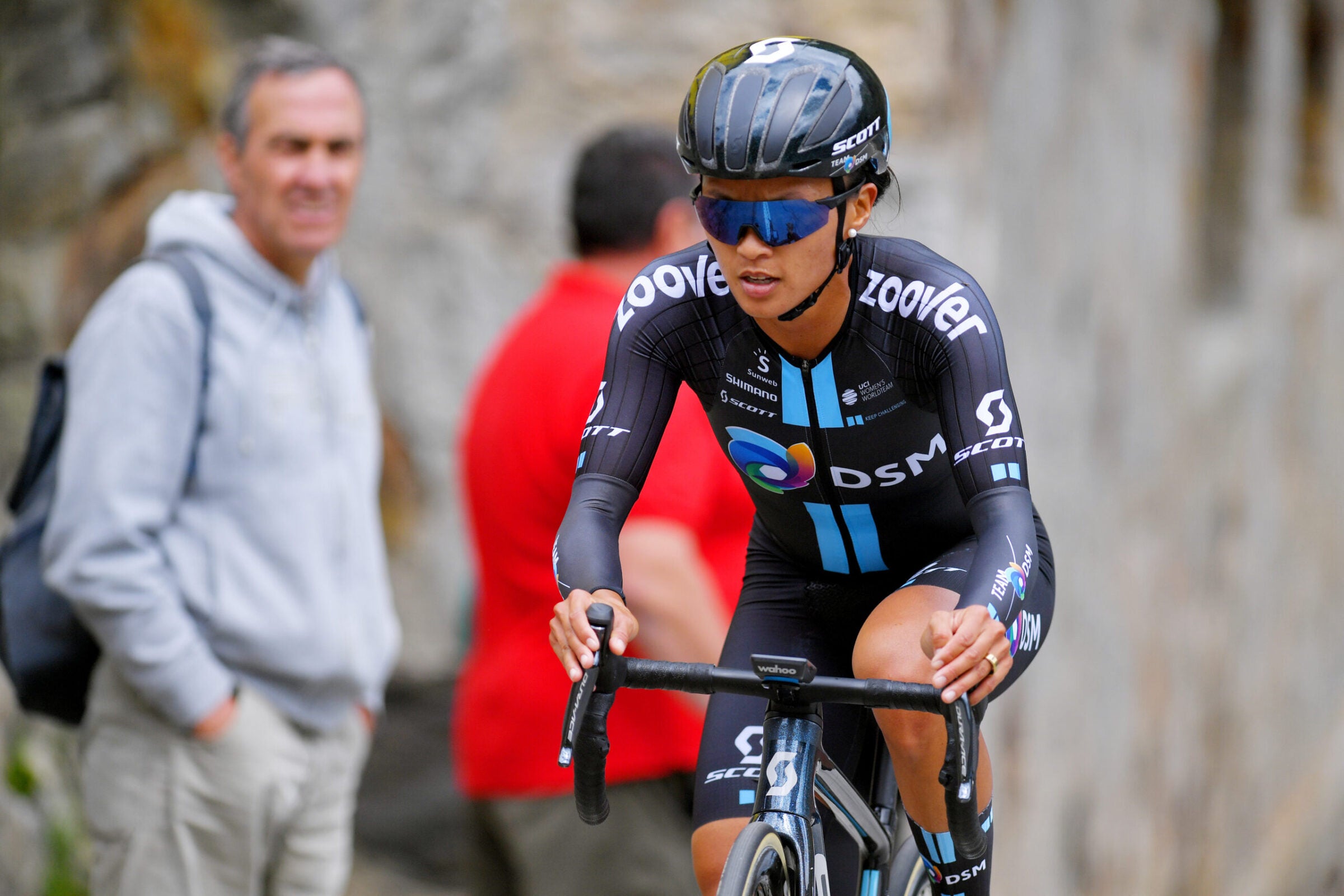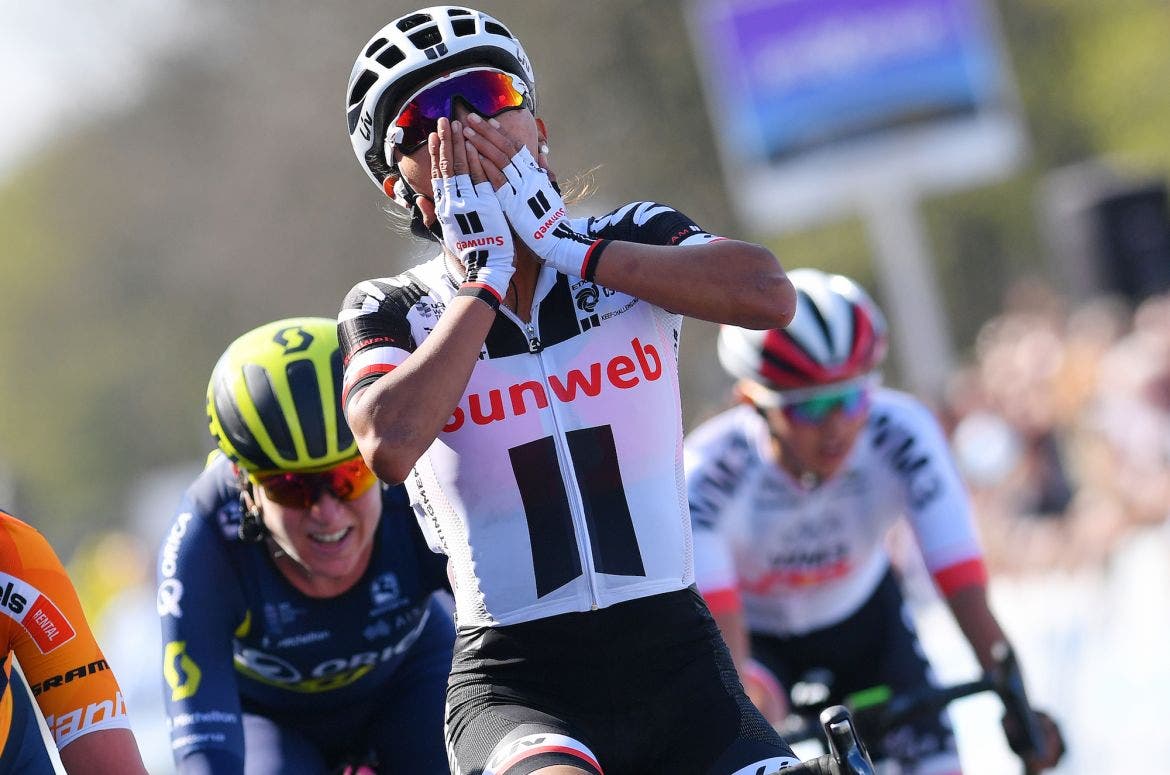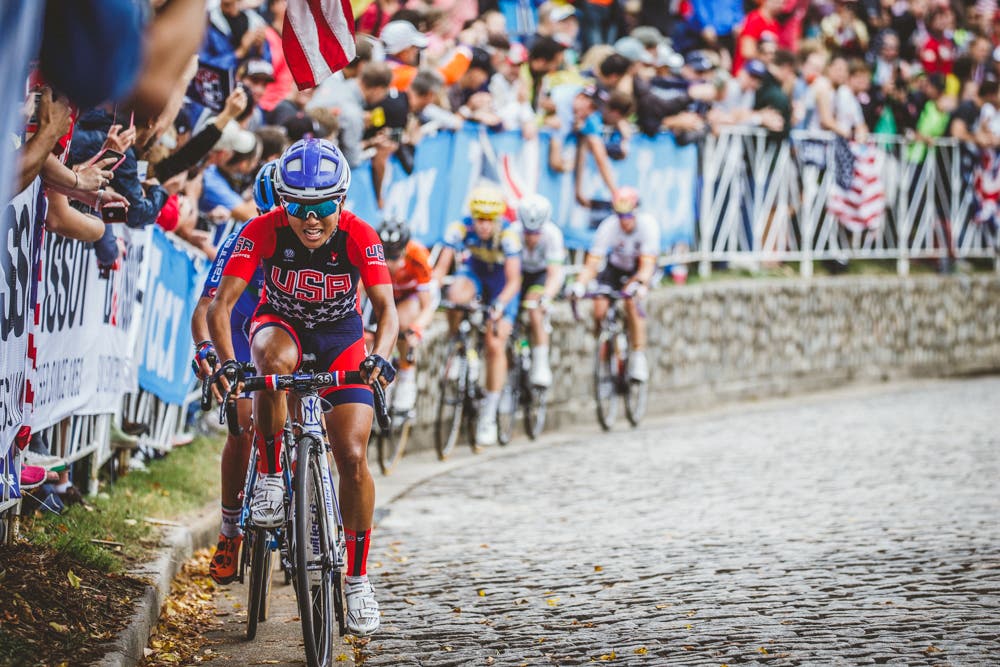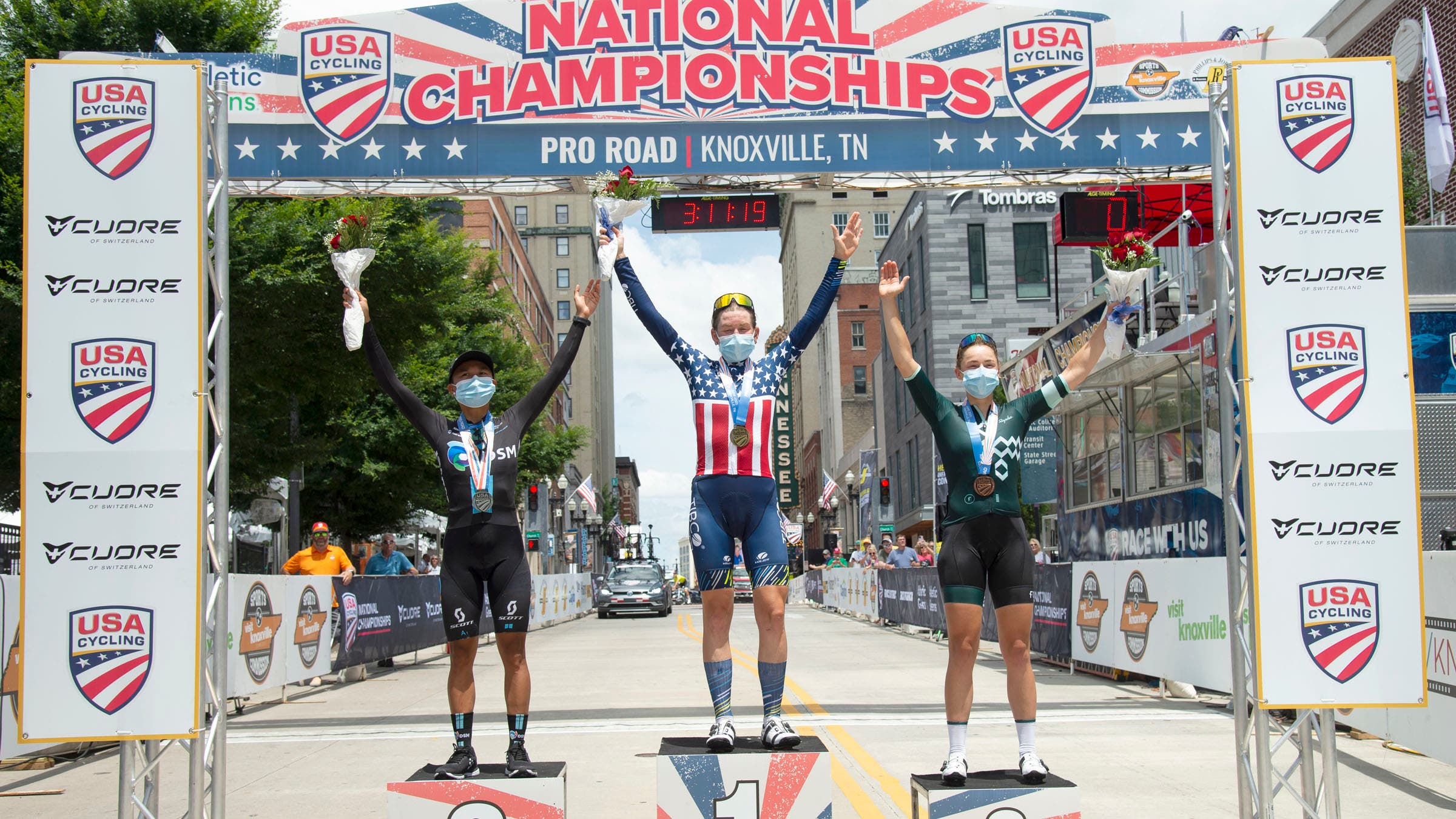How 72-time national champion Coryn Rivera finally made it to the Olympic Games

CASCATE DEL TOCE, ITALY - JULY 05: Coryn Rivera of United States and Team DSM during the 32nd Giro d'Italia Internazionale Femminile 2021, Stage 4 a 11,2km Individual Time Trial from Fondovalle to Cascate Del Toce 1714m / ITT / #GiroDonne / #UCIWWT / on July 05, 2021 in Cascate Del Toce, Italy. (Photo by Luc Claessen/Getty Images)
Coryn Rivera owns more national titles than any other cyclist in the United States, but this will be her first Olympic Games.
Read also: Coryn Rivera on the importance of the U.S. national championships
The 28-year-old who rides in the WorldTour for Team DSM has accomplished a huge amount in her 17 years of racing, including 72 national titles across four disciplines, a win at the 2017 Tour of Flanders — the first for an American — and her world championship gold medal as part of Team USA’s team time trial squad, also in 2017.
But she has never been an Olympian.
Rivera said that her journey to Tokyo was less the result of a dream and more a lifetime worth of learning.

VeloNews: I have to admit, I’m surprised this is your first trip to the Olympics.
Coryn Rivera: In Rio I was named as an alternate, and I filed for arbitration, but it didn’t go my way. I came close. Before Rio was London, and I was still in college. I think the Olympic dream was still alive, but my understanding of how to go, well, I was still young and learning the system. Then I realized, ‘oh I’m not going because I didn’t do XYZ.’ It’s been interesting to learn. When I was younger and racing juniors, I think it was more simple to make teams. I hadn’t made an elite world championship at that point, and I think learning the system was new to me. After London, I learned it more, trying to be ready and prepared for Rio. Which I think I did. There were just a lot of strong Americans.
VN: The U.S. seems to have a particularly complex selection process, as well.
CR: It’s a more complicated and longer process that people think — there are the qualifying country points, as well. This year, to be frank, I think there was a level of maturity in understanding how to actually go to the Olympics, that it’s not just a dream.

VN: So, you were being strategic?
CR: Absolutely. The qualification process started at the end of 2019, and part of that was getting points for countries. I just wanted to start really strong and show that I’m one of the best riders in the U.S. I brought in the most UCI points in the country in 2019 and also qualified to get the max starts spots for the country, so I think that was a big showing that I’m a big asset to the team and the country. I also got two stage wins at the Baloise Belgian Tour and 10th at worlds. Worlds was a big goal of mine; that’s an automatic selection so it’s the best and easiest way to qualify. That was the goal, and it turned out well, not well enough, but I think it showed I could be prepared for a big event.
2020 was just a lot of bad luck. I had a really good winter. Then with COVID, I had to reassess everything, motivation, then a new schedule. I went back to Europe to train, got a concussion at altitude camp, which set me back a bit. I got a stomach bug at Gent-Wevelgem. I just didn’t have a good time.
And obviously this year my dad’s passing was a big blow, although I was still pretty prepared and focused. There was just a huge emotional toll that carried on through the spring. But I think I still showed that I can be a really effective teammate even when I’m not doing my best.
CR: Being an American, I think the Olympics strikes a different tone than, say, for Europeans. I think it might mean more for us than it does for them.
A lot of it has to do with television. Cycling in Europe is so easy to watch. It’s incredible. In Belgium you turn on the TV in the spring and there’s bound to be a race on. You can’t do that in the U.S. But everyone is watching the Olympics for other sports, too, and then there just happens to be a cycling event.
With the absence of a Tour de France for women, I think the pinnacle of the sport is still world champs and Olympic Games. I think that speaks volumes of the event. Even more so for Tokyo, the challenges we’ve faced to have the event and the team, it might be unmatched for all the Games.
VN: How is the racing at the Olympics different from racing we watch all year?
CR: When there’s not big teams, it turns out to more of a survival race of the strongest teams and people. The heavy hitters are really clear, and I think there’s a big deciding point where it can blow up and the strongest riders have to figure out how to capitalize on that moment. What happened in Rio it was really clear. With teams of four, I think you can still make an impact on how you want to race. Obviously the Dutch are just ridiculously strong. It’s still a lot different than road worlds where there’s still teams of seven or nine. You can really play the game with riders who are workers and can sacrifice themselves. I think that’s why the Olympics becomes more of a waiting game for the strongest survivors.

VN: So, what will that look like for Team USA?
CR: It depends on the coaches selections and how they want to race. That’s also how they chose the team — how they think the race will play out and what kind of strategy the U.S. wants to use to medal. And then which riders can we field to accomplish that. I think we’re there with a strong team and different options. We’re not the team that will make the race, we’re not the Dutchies. We’re an underdog, so we’ll be more smart with the cards that we play.